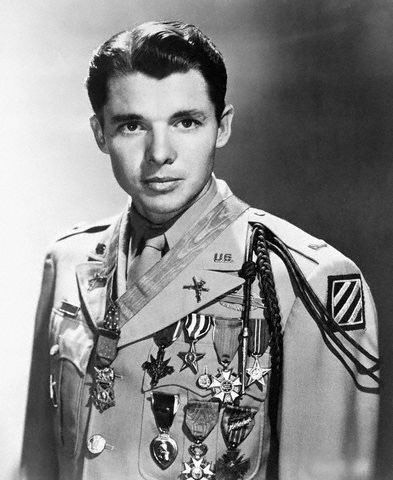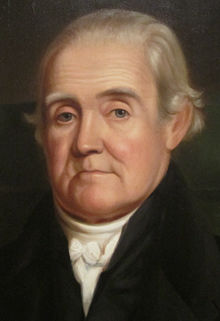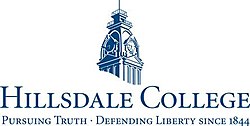
May 28 is the 148th day of the year (149th in leap years) in the Gregorian calendar. There are 217 days remaining until the end of the year.
Holidays
- Armed Forces Day (Croatia)
- Christian feast day:
- Downfall of the Derg Day, a National Day. (Ethiopia)
- Flag Day (Philippines)
- Republic Day (Nepal)
- TDFR Republic Day, celebrates the declaration of independence of the First Republic of Armenia and the Azerbaijan Democratic Republic from the Transcaucasian Democratic Federative Republic in 1918. (Azerbaijan and Armenia)
- Youm-e-Takbir (Pakistan)
History
In 585 BC, A solar eclipse occurs, as predicted by the Greek philosopher and scientist Thales, while Alyattes is battling Cyaxares in the Battle of Halys, leading to a truce. This is one of the cardinal dates from which other dates can be calculated.
In 621, Battle of Hulao: Li Shimin, the son of the Chinese emperor Gao Zu, defeats the numerically superior forces of Dou Jiande near the Hulao Pass (Henan). This victory decides the outcome of the civil war that followed the Sui Dynasty‘s collapse in favour of the Tang Dynasty.
In 1503, James IV of Scotland and Margaret Tudor are married according to a papal bull by Pope Alexander VI. A Treaty of Everlasting Peace between Scotland and England signed on that occasion results in a peace that lasts ten years.
In 1533, The Archbishop of Canterbury, Thomas Cranmer, declares the marriage of King Henry VIII of England to Anne Boleyn valid.
In 1588, The Spanish Armada, with 130 ships and 30,000 men, sets sail from Lisbon, Portugal, heading for the English Channel. (It will take until May 30 for all ships to leave port.)
In 1644, Bolton Massacre by Royalist troops under the command of James Stanley, 7th Earl of Derby.
In 1754, French and Indian War: in the first engagement of the war, Virginia militia under the 22-year-old Lieutenant colonel George Washington defeat a French reconnaissance party in the Battle of Jumonville Glen in what is now Fayette County in southwestern Pennsylvania.
In 1830, The U.S. President Andrew Jackson signs the Indian Removal Act which relocates Native Americans.
In 1843, Noah Webster, American lexicographer and author (b. 1758) dies. He was a lexicographer, textbook pioneer, English-language spelling reformer, political writer, editor, and prolific author. He has been called the “Father of American Scholarship and Education“. His blue-backed speller books taught five generations of American children how to spell and read, secularizing their education. According to Ellis (1979) he gave Americans “a secular catechism to the nation-state”. Webster’s name has become synonymous with “dictionary” in the United States, especially the modern Merriam-Webster dictionary that was first published in 1828 as An American Dictionary of the English Language. He is considered one of the Founding Fathers of the nation. Webster was by nature a revolutionary, seeking American independence from the cultural thralldom to Britain. To replace it he sought to create a utopian America, cleansed of luxury and ostentation and the champion of freedom. By 1781, Webster had an expansive view of the new nation. American nationalism was superior to Europe because American values were superior, he claimed.
In 1871, The Paris Commune falls.
In 1892, In San Francisco, California, John Muir organizes the Sierra Club.
In 1900, Gare d’Orsay railway station is inaugurated in Paris.
In 1905, Russo-Japanese War: The Battle of Tsushima ends with the destruction of the Russian Baltic Fleet by Admiral Tōgō Heihachirō and the Imperial Japanese Navy.
In 1907, The first Isle of Man TT race was held.
In 1918, The Azerbaijan Democratic Republic and the First Republic of Armenia declare their independence.
In 1926, 28 May 1926 coup d’état: Ditadura Nacional is established in Portugal to suppress the unrest of the First Republic.
In 1932, In the Netherlands, construction of the Afsluitdijk is completed and the Zuiderzee bay is converted to the freshwater IJsselmeer.
In 1934, Near Callander, Ontario, Canada, the Dionne quintuplets are born to Oliva and Elzire Dionne; they will be the first quintuplets to survive infancy.
In 1936, Alan Turing submits On Computable Numbers for publication.
In 1936, Klaipėda Radio Station begins regular broadcasting.
In 1937, The Golden Gate Bridge in San Francisco, California, is officially opened by President Franklin D. Roosevelt in Washington, D.C., who pushes a button signaling the start of vehicle traffic over the span.
In 1937, Volkswagen (VW), the German automobile manufacturer was founded.
In 1940, World War II: Belgium surrenders to Nazi Germany to end the Battle of Belgium.
In 1940, World War II: Norwegian, French, Polish and British forces recapture Narvik in Norway. This is the first allied infantry victory of the War.
In 1942, World War II: in retaliation for the assassination of Reinhard Heydrich, Nazis in Czechoslovakia kill over 1,800 people.
In 1951, The British radio comedy program The Goon Show was broadcast on the BBC for the first time.
In 1952, The women of Greece are given the right to vote.
In 1958, Cuban Revolution: Fidel Castro‘s 26th of July Movement, heavily reinforced by Frank Pais Militia, overwhelm an army post in El Uvero.
In 1961, Peter Benenson‘s article The Forgotten Prisoners is published in several internationally read newspapers. This will later be thought of as the founding of the human rights organization Amnesty International.
In 1964, The Palestine Liberation Organization is formed.

In 1971, Audie Murphy, American lieutenant and actor, Medal of Honor recipient (b. 1924) died when the private plane in which he was a passenger crashed into Brush Mountain, near Catawba, Virginia. He was one of the most decorated American combat soldiers of World War II, receiving every military combat award for valor available from the U.S. Army, as well as French and Belgian awards for heroism. The 19-year-old Murphy received the Medal of Honor after single-handedly holding off an entire company of Germans for an hour at the Colmar Pocket in France in January 1945, then leading a successful counterattack while wounded and out of ammunition. Murphy was born into a large sharecropper family in Hunt County, Texas. His father abandoned them, and his mother died when he was a teenager. Murphy left school in fifth grade to pick cotton and find other work to help support his family; his skill with a hunting rifle was a necessity for putting food on the table. Murphy’s older sister helped him to falsify documentation about his birth date to meet the minimum-age requirement for enlisting in the military, and after being turned down by the Navy and the Marine Corps he enlisted in the Army. He first saw action in the Allied invasion of Sicily and Anzio, and in 1944 was part of the liberation of Rome and invasion of southern France. Murphy fought at Montélimar, and led his men on a successful assault at the L’Omet quarry near Cleurie in northeastern France in October of that year. After the war Murphy enjoyed a 21-year acting career. He played himself in the 1955 autobiographical To Hell and Back based on his 1949 memoirs of the same name, but most of his films were westerns. He made guest appearances on celebrity television shows and starred in the series Whispering Smith. Murphy was a fairly accomplished songwriter, and bred quarter horses in California and Arizona, becoming a regular participant in horse racing. Suffering what would today be termed post-traumatic stress disorder (PTSD), he slept with a loaded handgun under his pillow and looked for solace in addictive sleeping pills. In the last few years of his life he was plagued by money problems, but refused offers to appear in alcohol and cigarette commercials because he did not want to set a bad example. Murphy died in a plane crash in Virginia in 1971 shortly before his 46th birthday, and was interred with full military honors at Arlington National Cemetery.
In 1974, Northern Ireland‘s power-sharing Sunningdale Agreement collapses following a general strike by loyalists.
In 1975, Fifteen West African countries sign the Treaty of Lagos, creating the Economic Community of West African States.
In 1977, In Southgate, Kentucky, the Beverly Hills Supper Club is engulfed in fire, killing 165 people inside.
In 1979, Konstantinos Karamanlis signs the full treaty of the accession of Greece with the European Economic Community.
In 1987, The 19-year-old West German pilot Mathias Rust evades Soviet Union air defenses and lands a private plane in the Red Square in Moscow, Russia. He is immediately detained and will not be released until August 3, 1988.
In 1991, The capital city of Addis Ababa falls to the Ethiopian People’s Revolutionary Democratic Front, ending both the Derg regime in Ethiopia and the Ethiopian Civil War.
In 1993, Eritrea and Monaco join the United Nations.
In 1995, The Russian town of Neftegorsk is hit by a 7.6 magnitude earthquake that kills at least 2,000 people, half of the total population.
In 1996, The U.S. President Bill Clinton‘s former business partners in the Whitewater land deal, Jim McDougal and Susan McDougal, and the Governor of Arkansas Jim Guy Tucker, are convicted of fraud.
In 1998, Nuclear testing: Pakistan responds to a series of nuclear tests by India with five of its own codenamed Chagai-I, prompting the United States, Japan, and other nations to impose economic sanctions. Pakistan celebrates Youm-e-Takbir annually.
In 1999, In Milan, Italy, after 22 years of restoration work, Leonardo da Vinci‘s masterpiece The Last Supper is put back on display.
In 2002, NATO declares Russia a limited partner in the Western alliance.
In 2002, The Mars Odyssey finds signs of large ice deposits on the planet Mars.
In 2003, Peter Hollingworth becomes the first Governor-General of Australia to resign his office as a result of criticism of his conduct.
In 2004, The Iraqi Governing Council chooses Ayad Allawi, a longtime anti-Saddam Hussein exile, as prime minister of Iraq‘s interim government.
In 2008, The first meeting of the Constituent Assembly of Nepal formally declares Nepal a republic, ending the 240-year reign of the Shah dynasty.
In 2010, In West Bengal, India, a train derailment and subsequent collision kills 141 passengers.
In 2011, Malta votes on the introduction of divorce.
In 2012, The discovery of Flame, a complex malware program targeting computers in Middle Eastern countries, is announced.
In 2013, With state legislative seasons wrapping up and official deadlines approaching, activists placed their hopes to end beverage freedom on a California soda tax proposal. Now, legislators have placed it in the “suspense file,” which effectively kills it. Proponents had hoped that the tax would reduce obesity, but there’s no evidence that it would. And it appears that attempts to hoodwink the public with promises of a “children’s health promotion fund” despite evidence that politicians are creative in their fund-avoidance schemes have failed as well.
In 2014, New York assembly passes medical marijuana bill.
In 2015, Former House speaker Dennis Hastert was indicted Thursday on charges that he tried to hide $3.5 million in hush money he allegedly paid someone to keep quiet about past misconduct. Hastert, 73, is accused of trying to mask nearly $1 million in bank withdrawals to avoid banking laws requiring banks to report cash transactions over $10,000. He also is accused of lying about the withdrawals to the FBI. Both counts carry up to five years in prison and a $250,000 fine.


